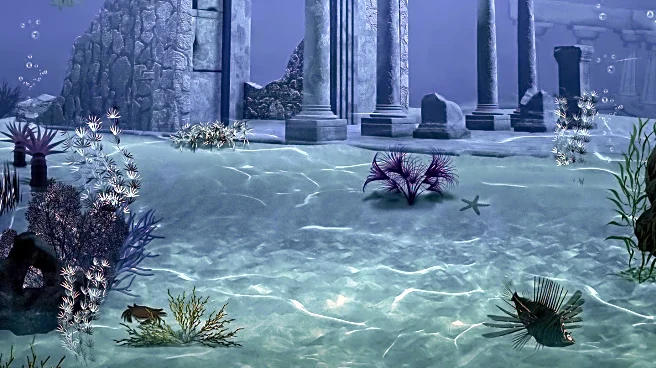What is the story about?
What's Happening?
Researchers have uncovered a Stone Age settlement submerged by rising sea levels in the Bay of Aarhus, Denmark. The discovery is part of a $15.5 million international project funded by the European Union to map submerged landscapes in the Baltic and North Seas. The settlement, dating back over 8,500 years, offers insights into coastal life during the Mesolithic era. Archaeologists have found animal bones, stone tools, and other artifacts preserved in an oxygen-free environment, providing a 'time capsule' of ancient human life.
Why It's Important?
This archaeological discovery sheds light on how ancient societies adapted to environmental changes, such as rising sea levels. Understanding these adaptations can inform current strategies for dealing with climate change and its impact on coastal communities. The preservation of artifacts in underwater sites offers unique opportunities for studying human history and evolution. The project also highlights the importance of interdisciplinary collaboration in uncovering and preserving historical sites, which can enhance cultural heritage and scientific knowledge.
















